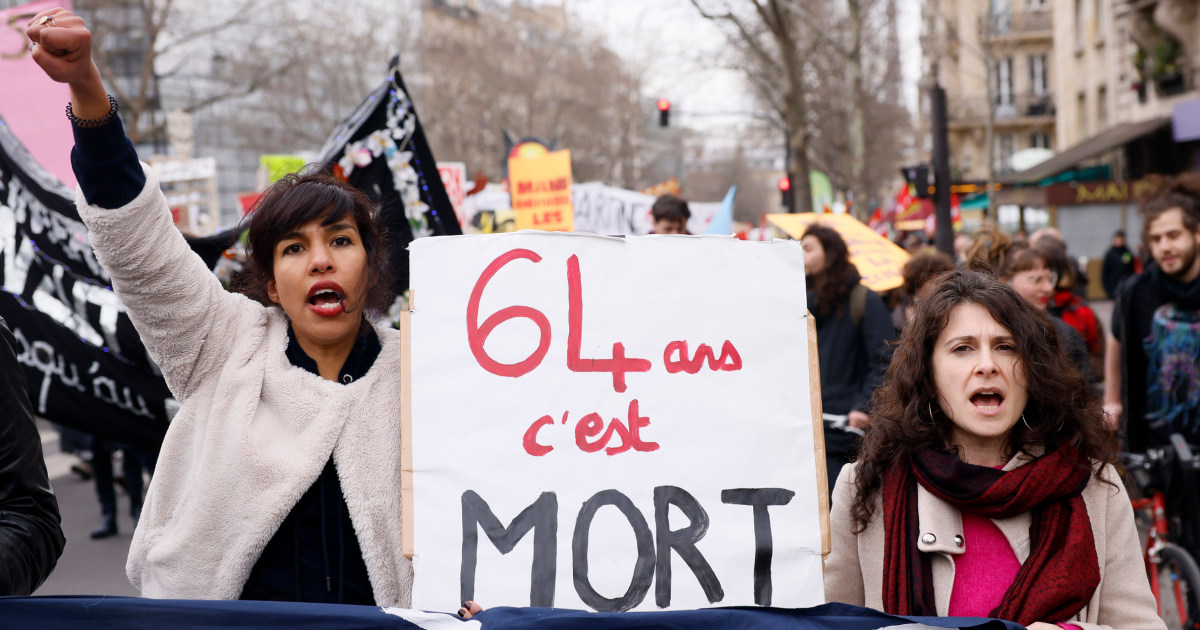France’s standoff over a bill raising the retirement age from 62 to 64 comes to a head on Thursday, either through a parliamentary vote or through a special presidential measure to force its passage through the legislature.
The Senate approved the bill on Thursday morning in a vote of 193-114, a recount that was largely expected as the conservative majority in the upper house of parliament favors a higher retirement age. The bill now goes to the lower house, the National Assembly, where its fate is uncertain.
President Emmanuel Macron met early in the morning with some leaders of his centrist alliance to discuss the complex political situation in the National Assembly. He is expected to meet them again at noon.
Macron’s alliance lost its parliamentary majority last year, forcing the government to rely on conservative lawmakers to pass the bill. Lawmakers on the left and the far right are strongly opposed and the Conservatives are split, making the outcome unpredictable.
The French leader wants to raise the retirement age so that workers put more money into the system, which the government says is on track to run a deficit. If he can’t get a majority vote in parliament, he has constitutional authority to unilaterally impose unpopular legislation.
Macron has promoted pension changes as a central part of his vision to make the French economy more competitive. Unions remained combative Wednesday night, calling on lawmakers to vote against the plan and denouncing the government’s legal shortcuts to moving the bill forward as a dangerous «denial of democracy.»
Nearly 500,000 people protested against the bill across the country on Wednesday. Students planned to march on the National Assembly headquarters on Thursday as garbage collectors held a strike that has caused rubbish to pile up around the French capital.
Macron «wishes» to see a vote in the National Assembly, his office said after a strategy session on Wednesday night with Prime Minister Elisabeth Borne and the ministers in charge of the bill.
Labor Minister Olivier Dussopt, speaking after the Senate vote, acknowledged that the government still has no guarantee that the text approved by a reconciliation committee on Wednesday will win a majority in the lower house.
“We are determined to build that majority,” he said. «That is our job, our commitment in the next few hours.»
Passage in the National Assembly would give the plan more legitimacy, but rather than face the risk of rejection, Macron could invoke his authority at the last minute to force the bill through parliament without a vote.
Economic challenges have sparked widespread unrest across Western Europe. In Britain on Wednesday, teachers, junior doctors and public transport staff were on strike for higher wages to match rising prices. And Spain’s leftist government joined unions in announcing a «historic» deal to save its pension system by raising social security costs for the highest wages.

